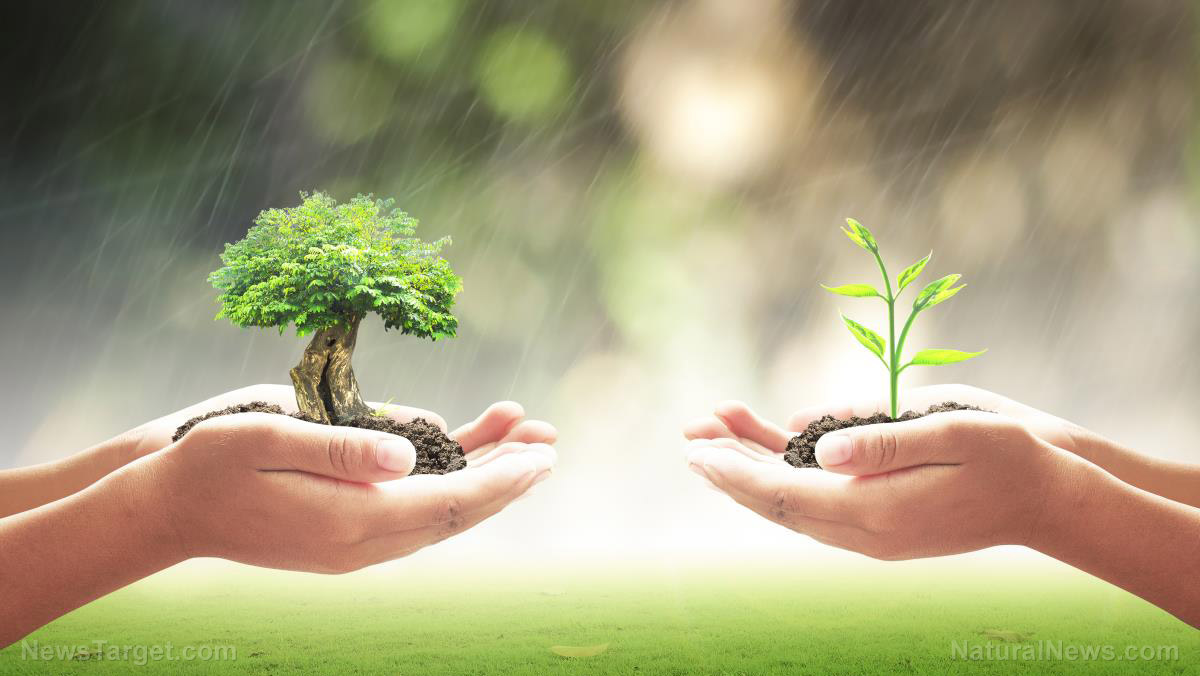Source: Natural News | VIEW ORIGINAL POST ==>

Stephen Harrod Buhner’s “The Lost Language of Plants” reminds people of how vital plants are to life on Earth
- Stephen Harrod Buhner’s book challenges the modern view of the universe as a machine and advocates for a holistic understanding of health and the environment, emphasizing the importance of reconnecting with nature.
- Buhner explores the innate human affinity for other living things, tracing his own awakening to this connection through a vivid childhood memory, highlighting the contrast between natural and industrialized life.
- The author critiques the rise of pharmaceuticals in the 20th century, arguing that it led to a cultural shift away from traditional plant-based remedies and contributed to environmental degradation and antibiotic resistance.
- Buhner argues that plants are not passive resources but active, intelligent participants in their ecosystems, producing compounds that benefit other organisms and maintain ecological balance.
- To heal the disconnection between humans and nature, the author provides practical suggestions for cultivating biophilia, such as spending time in natural settings and practicing mindful observation, emphasizing the importance of rediscovering the “lost language of plants.”
“The Lost Language of Plants: The Ecological Importance of Plant Medicines for Life on Earth,” by Stephen Harrod Buhner, invites readers to reconsider the fundamental connection between humans and the natural world. Through a blend of personal reflection and scientific insight, Buhner challenges the modern assumption that the universe operates as a machine, devoid of life and intelligence, urging a return to a more holistic understanding of health and the environment.
At the heart of Buhner’s argument is the concept of biophilia, a term popularized by biologist Edward O. Wilson to describe the innate human affinity for other living things. Buhner traces his own awakening to this connection through a vivid childhood memory of lying by a pond with his great-grandfather in rural Indiana. The sensory experiences of that moment – the smell of his great-grandfather, the sounds of the forest and the taste of wild water – symbolize a deeper, almost forgotten bond with Earth. This memory contrasts sharply with the “domesticated water” of modern industrial life, highlighting the ways in which humanity has distanced itself from nature.
This disconnection, Buhner argues, has led to a profound wound, both within individuals and in the environment. He explores how this rupture has influenced everything from environmental stewardship to medical practices. The rise of pharmaceuticals in the 20th century, for instance, was not just a shift in medical treatment but a broader cultural shift away from the wisdom inherent in plant-based remedies. Buhner details how the scientific community systematically dismissed traditional plant medicines as unscientific and dangerous, paving the way for the pharmaceutical industry to dominate healthcare. This change, he suggests, has had far-reaching consequences, not only for human health but also for the environment.
One of the most concerning impacts of this shift is the environmental degradation caused by pharmaceuticals. Many of these drugs are not biodegradable and persist in waterways, soil and even wildlife, creating a toxic legacy. Buhner also tackles the growing problem of antibiotic resistance, a direct consequence of the overuse of these drugs. The evolution of resistant bacteria, he argues, underscores the futility of attempting to control nature through dominant, reductionist methods. Instead, Buhner advocates for a more integrative approach to medicine, one that recognizes the interconnectedness of all life and works in harmony with natural systems.
Central to Buhner’s vision is the recognition of plants as active, intelligent participants in their ecosystems. Contrary to the notion of plants as passive resources, he explains how they engage in complex chemical communication, producing a myriad of compounds to protect themselves, communicate with other organisms and sustain the health of the planet. Plants are not merely medicines for humans; they are essential to the health of all life on Earth. Their ability to produce compounds that benefit other organisms, from insects to mammals, highlights their vital role in maintaining ecological balance.
To heal the wounds of disconnection, Buhner emphasizes the importance of reconnecting with nature. This is not just an environmental imperative but a crucial aspect of human health and well-being. He provides practical suggestions for cultivating biophilia, such as spending time in natural settings and practicing mindful observation. By engaging with the natural world in these ways, Buhner believes people can rediscover the lost language of plants and restore the balance disrupted by modern industrialization.
Watch this video discussing Stephen Harrod Buhner’s groundbreaking book, “The Lost Language of Plants: The Ecological Importance of Plant Medicines for Life on Earth.”
This video is from the BrightLearn channel on Brighteon.com.
Sources include:

